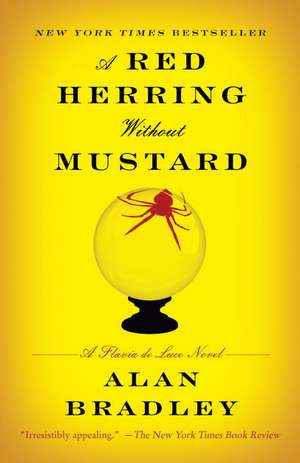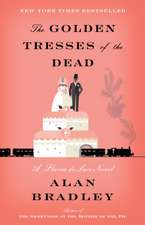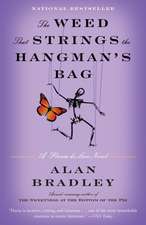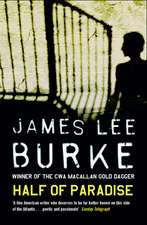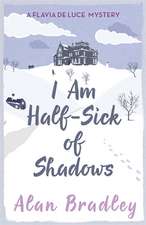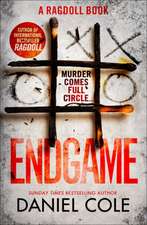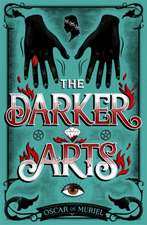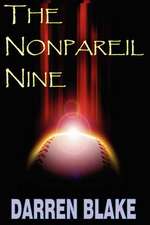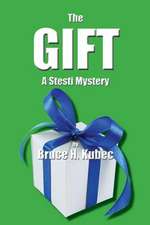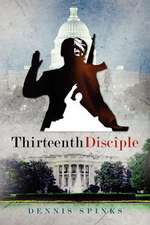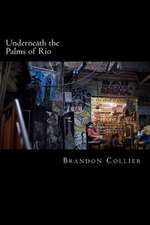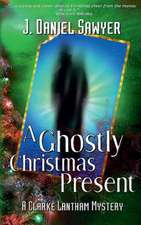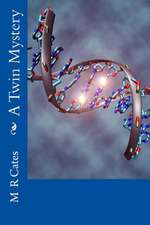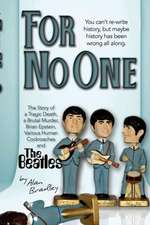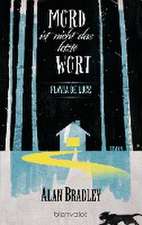A Red Herring Without Mustard: A Flavia de Luce Novel: Flavia de Luce Mysteries
Autor Alan Bradleyen Limba Engleză Paperback – 30 sep 2011
Alan Bradley, author of the most award-winning series debut of any year, returns with another irresistible Flavia de Luce novel
In the hamlet of Bishop’s Lacey, the insidiously clever and unflappable eleven-year-old sleuth Flavia de Luce had asked a Gypsy woman to tell her fortune—never expecting to later stumble across the poor soul, bludgeoned almost to death in the wee hours in her own caravan. Was this an act of retribution by those convinced that the soothsayer abducted a local child years ago? Certainly Flavia understands the bliss of settling scores; revenge is a delightful pastime when one has two odious older sisters. But how could this crime be connected to the missing baby? As the red herrings pile up, Flavia must sort through clues fishy and foul to untangle dark deeds and dangerous secrets.
| Toate formatele și edițiile | Preț | Express |
|---|---|---|
| Paperback (2) | 54.13 lei 3-5 săpt. | +28.11 lei 5-11 zile |
| Orion Publishing Group – 15 mar 2012 | 54.13 lei 3-5 săpt. | +28.11 lei 5-11 zile |
| Bantam – 30 sep 2011 | 94.23 lei 3-5 săpt. |
Preț: 94.23 lei
Nou
Puncte Express: 141
Preț estimativ în valută:
18.03€ • 18.76$ • 14.89£
18.03€ • 18.76$ • 14.89£
Carte disponibilă
Livrare economică 24 martie-07 aprilie
Preluare comenzi: 021 569.72.76
Specificații
ISBN-13: 9780385343466
ISBN-10: 0385343469
Pagini: 432
Ilustrații: MAP IN FRONT MATTER
Dimensiuni: 135 x 202 x 24 mm
Greutate: 0.3 kg
Editura: Bantam
Seria Flavia de Luce Mysteries
ISBN-10: 0385343469
Pagini: 432
Ilustrații: MAP IN FRONT MATTER
Dimensiuni: 135 x 202 x 24 mm
Greutate: 0.3 kg
Editura: Bantam
Seria Flavia de Luce Mysteries
Notă biografică
Alan Bradley is the internationally bestselling author of many short stories, children’s stories, newspaper columns, and the memoir The Shoebox Bible. His first Flavia de Luce mystery, The Sweetness at the Bottom of the Pie, received the Crime Writers’ Association Debut Dagger Award, the Dilys Award, the Arthur Ellis Award, and the Agatha Award, and was nominated for the Macavity, the Anthony, and the Barry awards. His second Flavia de Luce mystery is The Weed That Strings the Hangman’s Bag. Bradley lives in Malta with his wife and two calculating cats, and is currently at work on the next Flavia de Luce mystery, I Am Half Sick of Shadows.
From the Hardcover edition.
From the Hardcover edition.
Extras
ONE
"You frighten me," the Gypsy said. "Never have I seen my crystal ball so filled with darkness."
She cupped her hands around the thing, as if to shield my eyes from the horrors that were swimming in its murky depths. As her fingers gripped the glass, I thought I could feel ice water trickling down inside my gullet.
At the edge of the table, a thin candle flickered, its sickly light glancing off the dangling brass hoops of the Gypsy's earrings, then flying off to die somewhere in the darkened corners of the tent.
Black hair, black eyes, black dress, red-painted cheeks, red mouth, and a voice that could only have come from smoking half a million cigarettes.
As if to confirm my suspicions, the old woman was suddenly gripped by a fit of violent coughing that rattled her crooked frame and left her gasping horribly for air. It sounded as though a large bird had somehow become entangled in her lungs and was flapping to escape.
"Are you all right?" I asked. "I'll go for help."
I thought I had seen Dr. Darby in the churchyard not ten minutes earlier, pausing to have a word or two at each stall of the church fête. But before I could make a move, the Gypsy's dusky hand had covered mine on the black velvet of the tabletop.
"No," she said. "No . . . don't do that. It happens all the time."
And she began to cough again.
I waited it out patiently, almost afraid to move.
"How old are you?" she said at last. "Ten? Twelve?"
"Eleven," I said, and she nodded her head wearily as though she'd known it all along.
"I see--a mountain," she went on, almost strangling on the words, "and the face--of the woman you will become."
In spite of the stifling heat of the darkened tent, my blood ran cold. She was seeing Harriet, of course!
Harriet was my mother, who had died in a climbing accident when I was a baby.
The Gypsy turned my hand over and dug her thumb painfully into the very center of my palm. My fingers spread--and then curled in upon themselves like the toes of a chicken's severed foot.
She took up my left hand. "This is the hand you were born with," she said, barely glancing at the palm, then letting it fall and picking up the other. ". . . and this is the hand you've grown."
She stared at it distastefully as the candle flickered. "This broken star on your Mount of Luna shows a brilliant mind turned in upon itself--a mind that wanders the roads of darkness."
This was not what I wanted to hear.
"Tell me about the woman you saw on the mountain," I said. "The one I shall become."
She coughed again, clutching her colored shawl tightly about her shoulders, as though wrapping herself against some ancient and invisible winter wind.
"Cross my palm with silver," she demanded, sticking out a grubby hand.
"But I gave you a shilling," I said. "That's what it says on the board outside."
"Messages from the Third Circle cost extra," she wheezed. "They drain the batteries of my soul."
I almost laughed out loud. Who did this old hag think she was? But still, she seemed to have spotted Harriet beyond the veil, and I couldn't let skepticism spoil even half a chance of having a few words with my dead mother.
I dug for my last shilling, and as I pressed the coin into her hand, the Gypsy's dark eyes, suddenly as bright as a jackdaw's, met mine.
"She is trying to come home," she said. "This . . . woman . . . is trying to come home from the cold. She wants you to help her."
I leapt to my feet, bashing the bottom of the table with my bare knees. It teetered, then toppled to one side as the candle slid off and fell among a tangle of dusty black hangings.
At first there was a little wisp of black smoke as the flame turned blue, then red, then quickly orange. I looked on in horror as it spread along the drapery.
In less time than it takes to tell, the entire tent was in flames.
I wish I'd had the presence of mind to throw a wet cloth over the Gypsy's eyes and lead her to safety, but instead I bolted--straight through the circle of fire that was the entranceway--and I didn't stop until I reached the coconut pitch, where I stood panting behind a canvas drape, trying to catch my breath.
Someone had brought a wind-up gramophone to the churchyard, from which the voice of Danny Kaye was issuing, made nauseously tinny by the throat of the machine's painted horn:
"Oh I've got a lov-ely bunch of coconuts.
There they are a-standin' in a row . . ."
I looked back at the Gypsy's tent just in time to see Mr. Haskins, St. Tancred's sexton, and another man whom I didn't recognize heave a tub of water, apples and all, onto the flames.
Half the villagers of Bishop's Lacey, or so it seemed, stood gaping at the rising column of black smoke, hands over mouths or fingertips to cheeks, and not a single one of them knowing what to do.
Dr. Darby was already leading the Gypsy slowly away towards the St. John's Ambulance tent, her ancient frame wracked with coughing. How small she seemed in the sunlight, I thought, and how pale.
"Oh, there you are, you odious little prawn. We've been looking for you everywhere."
It was Ophelia, the older of my two sisters. Feely was seventeen, and ranked herself right up there with the Blessed Virgin Mary, although the chief difference between them, I'm willing to bet, is that the BVM doesn't spend twenty-three hours a day peering at herself in a looking glass while picking away at her face with a pair of tweezers.
With Feely, it was always best to employ the rapid retort: "How dare you call me a prawn, you stupid sausage? Father's told you more than once it's disrespectful."
Feely made a snatch at my ear, but I sidestepped her easily. By sheer necessity, the lightning dodge had become one of my specialties.
"Where's Daffy?" I asked, hoping to divert her venomous attention.
Daffy was my other sister, two years older than me, and at thirteen already an accomplished co-torturer.
"Drooling over the books. Where else?" She pointed with her chin to a horseshoe of trestle tables on the churchyard grass, upon which the St. Tancred's Altar Guild and the Women's Institute had joined forces to set up a jumble sale of secondhand books and assorted household rubbish.
Feely had seemed not to notice the smoking remnants of the Gypsy's tent. As always, she had left her spectacles at home out of vanity, but her inattentiveness might simply have been lack of interest. For all practical purposes, Feely's enthusiasms stopped where her skin ended.
"Look at these," she said, holding a set of black earrings up to her ears. She couldn't resist showing off. "French jet. They came from Lady Trotter's estate. Glenda says they were quite fortunate to get a tanner for them."
"Glenda's right," I said. "French jet is nothing but glass."
It was true: I had recently melted down a ghastly Victorian brooch in my chemical laboratory, and found it to be completely silicaceous. It was unlikely that Feely would ever miss the thing.
"English jet is so much more interesting," I said. "It's formed from the fossilized remains of monkey-puzzle trees, you see, and--"
But Feely was already walking away, lured by the sight of Ned Cropper, the ginger-haired potboy at the Thirteen Drakes who, with a certain muscular grace, was energetically tossing wooden batons at the Aunt Sally. His third stick broke the wooden figure's clay pipe clean in two, and Feely pulled up at his side just in time to be handed the teddy bear prize by the madly blushing Ned.
"Anything worth saving from the bonfire?" I asked Daffy, who had her nose firmly stuck in what, judging by its spotty oxidized pages, might have been a first edition of Pride and Prejudice.
It seemed unlikely, though. Whole libraries had been turned in for salvage during the war, and nowadays there wasn't much left for the jumble sales. Whatever books remained unsold at the end of the summer season would, on Guy Fawkes Night, be carted from the basement of the parish hall, heaped up on the village green, and put to the torch.
I tipped my head sideways and took a quick squint at the stack of books Daffy had already set aside: On Sledge and Horseback to Outcast Siberian Lepers, Pliny's Natural History, The Martyrdom of Man, and the first two volumes of the Memoirs of Jacques Casanova--the most awful piffle. Except perhaps for Pliny, who had written some ripping stuff about poisons.
I walked slowly along the table, running a finger across the books, all of them arranged with their spines upwards: Ethel M. Dell, E. M. Delafield, Warwick Deeping . . .
I had noticed on another occasion that most of the great poisoners in history had names beginning with the letter C, and now here were all of these authors beginning with a D. Was I on to something? Some secret of the universe?
I squeezed my eyes shut and concentrated: Dickens . . . Doyle . . . Dumas . . . Dostoyevsky--I had seen all of them, at one time or another, clutched in Daffy's hands.
Daffy herself was planning to become a novelist when she was older. With a name like Daphne de Luce, she couldn't fail if she tried!
"Daff!" I said. "You'll never guess--"
"Quiet!" she snapped. "I've told you not to speak to me when I'm reading."
My sister could be a most unpleasant porpoise when she felt like it.
It had not always been this way. When I was younger, for instance, and Father had recruited Daffy to hear my bedtime prayers, she had taught me to recite them in Pig Latin, and we had rolled among the down-filled pillows, laughing until we nearly split.
"Od-gay ess-blay Ather-fay, Eely-fay, and Issis-may Ullet-may. And Ogger-day, oo-tay!"
But over the years, something had changed between my sisters and me.
A little hurt, I reached for a volume that lay on top of the others: A Looking Glasse, for London and Englande. It was a book, I thought, that would appeal to Feely, since she was mad about mirrors. Perhaps I would purchase it myself, and store it away against the unlikely day when I might feel like giving her a gift, or a peace offering. Stranger things had happened.
Riffling through its pages, I saw at once that it was not a novel, but a play--full of characters' names and what each of them said. Someone named Adam was talking to a clown:
". . . a cup of ale without a wench, why, alas, 'tis like an egg without salt or a red herring without mustard."
What a perfect motto for a certain someone, I thought, glancing across to where Ned was now grazing away at my sister's neck as she pretended not to notice. On more than one occasion I'd seen Ned sitting at his chores in the courtyard of the Thirteen Drakes with a tankard of ale--and sometimes Mary Stoker, the landlord's daughter--at his elbow. I realized with an unexpected shock that without either ale or a female within easy reach, Ned was somehow incomplete. Why hadn't I noticed that before? Perhaps, like Dr. Watson on the wireless in A Scandal in Bohemia, there are times that I see, but do not observe. This was something I needed to think about.
"Your handiwork, I suppose?" Daffy said suddenly, putting down a book and picking up another. She gestured towards the small knot of villagers who stood gawking at the smoking ruins of the Gypsy's tent. "It has Flavia de Luce written all over it."
"Sucks to you," I said. "I was going to help carry your stupid books home, but now you can jolly well lug them yourself."
"Oh, do stop it!" she said, clutching at my sleeve. "Please desist. My heartstrings are playing Mozart's Requiem, and a fugitive tear is making its way to my right eye, even as we speak."
I wandered away with a careless whistle. I'd deal with her insolence later.
"Ow! Leave off, Brookie! You're 'urtin' me."
The whining voice was coming from somewhere behind the shove ha'penny booth and, when I recognized it as belonging to Colin Prout, I stopped to listen.
By flattening myself against the stone wall of the church and keeping well back behind the canvas that draped the raffle booth, I could eavesdrop in safety. Even better, I was pleased to find that I had an unexpectedly clear view of Colin through the gaps in the booth's raw lumber.
He was dancing at the end of Brookie Harewood's arm like a great spectacled fish, his thick eyeglasses knocked askew, his dirty blond hair a hayrick, his large, damp mouth hanging open, gasping for air.
"Leave off. I didn't do nothin'."
With his other hand, Brookie took hold of the seat of Colin's baggy trousers and swiveled him round to face the smoking remains of the Gypsy's tent.
"Who did that, then, eh?" he demanded, shaking the boy to accentuate his words. "Where there's smoke, there's fire. Where there's fire, there's matches. And where there's matches, there's Colin Prout."
" 'Ere," Colin said, trying to ram a hand into his pocket. "Count 'em! You just count 'em, Brookie. Same number as I had yesterday. Three. I ain't used a one."
As Brookie released his grip, Colin fell to the ground, rolled over on his elbows, dug into his trouser pocket, and produced a box of wooden matches, which he waved at his tormentor.
Brookie raised his head and sniffed the air, as if for guidance. His greasy cap and India rubber boots, his long moleskin coat and, in spite of the hot summer weather, a woolen scarf that clung like a scarlet serpent to his bulldog neck made him look like a rat catcher out of Dickens.
Before I could even wonder what to do, Colin had scrambled to his feet, and the two of them had ambled away across the churchyard, Colin dusting himself off and shrugging elaborately, as though he didn't care.
I suppose I should have stepped out from behind the booth, admitted I was responsible for the fire, and demanded that Brookie release the boy. If he refused, I could easily have run for the vicar, or called for any one of the other able-bodied men who were within earshot. But I didn't. And the simple reason, I realized with a little chill, was this: I was afraid of Brookie Harewood.
From the Hardcover edition.
"You frighten me," the Gypsy said. "Never have I seen my crystal ball so filled with darkness."
She cupped her hands around the thing, as if to shield my eyes from the horrors that were swimming in its murky depths. As her fingers gripped the glass, I thought I could feel ice water trickling down inside my gullet.
At the edge of the table, a thin candle flickered, its sickly light glancing off the dangling brass hoops of the Gypsy's earrings, then flying off to die somewhere in the darkened corners of the tent.
Black hair, black eyes, black dress, red-painted cheeks, red mouth, and a voice that could only have come from smoking half a million cigarettes.
As if to confirm my suspicions, the old woman was suddenly gripped by a fit of violent coughing that rattled her crooked frame and left her gasping horribly for air. It sounded as though a large bird had somehow become entangled in her lungs and was flapping to escape.
"Are you all right?" I asked. "I'll go for help."
I thought I had seen Dr. Darby in the churchyard not ten minutes earlier, pausing to have a word or two at each stall of the church fête. But before I could make a move, the Gypsy's dusky hand had covered mine on the black velvet of the tabletop.
"No," she said. "No . . . don't do that. It happens all the time."
And she began to cough again.
I waited it out patiently, almost afraid to move.
"How old are you?" she said at last. "Ten? Twelve?"
"Eleven," I said, and she nodded her head wearily as though she'd known it all along.
"I see--a mountain," she went on, almost strangling on the words, "and the face--of the woman you will become."
In spite of the stifling heat of the darkened tent, my blood ran cold. She was seeing Harriet, of course!
Harriet was my mother, who had died in a climbing accident when I was a baby.
The Gypsy turned my hand over and dug her thumb painfully into the very center of my palm. My fingers spread--and then curled in upon themselves like the toes of a chicken's severed foot.
She took up my left hand. "This is the hand you were born with," she said, barely glancing at the palm, then letting it fall and picking up the other. ". . . and this is the hand you've grown."
She stared at it distastefully as the candle flickered. "This broken star on your Mount of Luna shows a brilliant mind turned in upon itself--a mind that wanders the roads of darkness."
This was not what I wanted to hear.
"Tell me about the woman you saw on the mountain," I said. "The one I shall become."
She coughed again, clutching her colored shawl tightly about her shoulders, as though wrapping herself against some ancient and invisible winter wind.
"Cross my palm with silver," she demanded, sticking out a grubby hand.
"But I gave you a shilling," I said. "That's what it says on the board outside."
"Messages from the Third Circle cost extra," she wheezed. "They drain the batteries of my soul."
I almost laughed out loud. Who did this old hag think she was? But still, she seemed to have spotted Harriet beyond the veil, and I couldn't let skepticism spoil even half a chance of having a few words with my dead mother.
I dug for my last shilling, and as I pressed the coin into her hand, the Gypsy's dark eyes, suddenly as bright as a jackdaw's, met mine.
"She is trying to come home," she said. "This . . . woman . . . is trying to come home from the cold. She wants you to help her."
I leapt to my feet, bashing the bottom of the table with my bare knees. It teetered, then toppled to one side as the candle slid off and fell among a tangle of dusty black hangings.
At first there was a little wisp of black smoke as the flame turned blue, then red, then quickly orange. I looked on in horror as it spread along the drapery.
In less time than it takes to tell, the entire tent was in flames.
I wish I'd had the presence of mind to throw a wet cloth over the Gypsy's eyes and lead her to safety, but instead I bolted--straight through the circle of fire that was the entranceway--and I didn't stop until I reached the coconut pitch, where I stood panting behind a canvas drape, trying to catch my breath.
Someone had brought a wind-up gramophone to the churchyard, from which the voice of Danny Kaye was issuing, made nauseously tinny by the throat of the machine's painted horn:
"Oh I've got a lov-ely bunch of coconuts.
There they are a-standin' in a row . . ."
I looked back at the Gypsy's tent just in time to see Mr. Haskins, St. Tancred's sexton, and another man whom I didn't recognize heave a tub of water, apples and all, onto the flames.
Half the villagers of Bishop's Lacey, or so it seemed, stood gaping at the rising column of black smoke, hands over mouths or fingertips to cheeks, and not a single one of them knowing what to do.
Dr. Darby was already leading the Gypsy slowly away towards the St. John's Ambulance tent, her ancient frame wracked with coughing. How small she seemed in the sunlight, I thought, and how pale.
"Oh, there you are, you odious little prawn. We've been looking for you everywhere."
It was Ophelia, the older of my two sisters. Feely was seventeen, and ranked herself right up there with the Blessed Virgin Mary, although the chief difference between them, I'm willing to bet, is that the BVM doesn't spend twenty-three hours a day peering at herself in a looking glass while picking away at her face with a pair of tweezers.
With Feely, it was always best to employ the rapid retort: "How dare you call me a prawn, you stupid sausage? Father's told you more than once it's disrespectful."
Feely made a snatch at my ear, but I sidestepped her easily. By sheer necessity, the lightning dodge had become one of my specialties.
"Where's Daffy?" I asked, hoping to divert her venomous attention.
Daffy was my other sister, two years older than me, and at thirteen already an accomplished co-torturer.
"Drooling over the books. Where else?" She pointed with her chin to a horseshoe of trestle tables on the churchyard grass, upon which the St. Tancred's Altar Guild and the Women's Institute had joined forces to set up a jumble sale of secondhand books and assorted household rubbish.
Feely had seemed not to notice the smoking remnants of the Gypsy's tent. As always, she had left her spectacles at home out of vanity, but her inattentiveness might simply have been lack of interest. For all practical purposes, Feely's enthusiasms stopped where her skin ended.
"Look at these," she said, holding a set of black earrings up to her ears. She couldn't resist showing off. "French jet. They came from Lady Trotter's estate. Glenda says they were quite fortunate to get a tanner for them."
"Glenda's right," I said. "French jet is nothing but glass."
It was true: I had recently melted down a ghastly Victorian brooch in my chemical laboratory, and found it to be completely silicaceous. It was unlikely that Feely would ever miss the thing.
"English jet is so much more interesting," I said. "It's formed from the fossilized remains of monkey-puzzle trees, you see, and--"
But Feely was already walking away, lured by the sight of Ned Cropper, the ginger-haired potboy at the Thirteen Drakes who, with a certain muscular grace, was energetically tossing wooden batons at the Aunt Sally. His third stick broke the wooden figure's clay pipe clean in two, and Feely pulled up at his side just in time to be handed the teddy bear prize by the madly blushing Ned.
"Anything worth saving from the bonfire?" I asked Daffy, who had her nose firmly stuck in what, judging by its spotty oxidized pages, might have been a first edition of Pride and Prejudice.
It seemed unlikely, though. Whole libraries had been turned in for salvage during the war, and nowadays there wasn't much left for the jumble sales. Whatever books remained unsold at the end of the summer season would, on Guy Fawkes Night, be carted from the basement of the parish hall, heaped up on the village green, and put to the torch.
I tipped my head sideways and took a quick squint at the stack of books Daffy had already set aside: On Sledge and Horseback to Outcast Siberian Lepers, Pliny's Natural History, The Martyrdom of Man, and the first two volumes of the Memoirs of Jacques Casanova--the most awful piffle. Except perhaps for Pliny, who had written some ripping stuff about poisons.
I walked slowly along the table, running a finger across the books, all of them arranged with their spines upwards: Ethel M. Dell, E. M. Delafield, Warwick Deeping . . .
I had noticed on another occasion that most of the great poisoners in history had names beginning with the letter C, and now here were all of these authors beginning with a D. Was I on to something? Some secret of the universe?
I squeezed my eyes shut and concentrated: Dickens . . . Doyle . . . Dumas . . . Dostoyevsky--I had seen all of them, at one time or another, clutched in Daffy's hands.
Daffy herself was planning to become a novelist when she was older. With a name like Daphne de Luce, she couldn't fail if she tried!
"Daff!" I said. "You'll never guess--"
"Quiet!" she snapped. "I've told you not to speak to me when I'm reading."
My sister could be a most unpleasant porpoise when she felt like it.
It had not always been this way. When I was younger, for instance, and Father had recruited Daffy to hear my bedtime prayers, she had taught me to recite them in Pig Latin, and we had rolled among the down-filled pillows, laughing until we nearly split.
"Od-gay ess-blay Ather-fay, Eely-fay, and Issis-may Ullet-may. And Ogger-day, oo-tay!"
But over the years, something had changed between my sisters and me.
A little hurt, I reached for a volume that lay on top of the others: A Looking Glasse, for London and Englande. It was a book, I thought, that would appeal to Feely, since she was mad about mirrors. Perhaps I would purchase it myself, and store it away against the unlikely day when I might feel like giving her a gift, or a peace offering. Stranger things had happened.
Riffling through its pages, I saw at once that it was not a novel, but a play--full of characters' names and what each of them said. Someone named Adam was talking to a clown:
". . . a cup of ale without a wench, why, alas, 'tis like an egg without salt or a red herring without mustard."
What a perfect motto for a certain someone, I thought, glancing across to where Ned was now grazing away at my sister's neck as she pretended not to notice. On more than one occasion I'd seen Ned sitting at his chores in the courtyard of the Thirteen Drakes with a tankard of ale--and sometimes Mary Stoker, the landlord's daughter--at his elbow. I realized with an unexpected shock that without either ale or a female within easy reach, Ned was somehow incomplete. Why hadn't I noticed that before? Perhaps, like Dr. Watson on the wireless in A Scandal in Bohemia, there are times that I see, but do not observe. This was something I needed to think about.
"Your handiwork, I suppose?" Daffy said suddenly, putting down a book and picking up another. She gestured towards the small knot of villagers who stood gawking at the smoking ruins of the Gypsy's tent. "It has Flavia de Luce written all over it."
"Sucks to you," I said. "I was going to help carry your stupid books home, but now you can jolly well lug them yourself."
"Oh, do stop it!" she said, clutching at my sleeve. "Please desist. My heartstrings are playing Mozart's Requiem, and a fugitive tear is making its way to my right eye, even as we speak."
I wandered away with a careless whistle. I'd deal with her insolence later.
"Ow! Leave off, Brookie! You're 'urtin' me."
The whining voice was coming from somewhere behind the shove ha'penny booth and, when I recognized it as belonging to Colin Prout, I stopped to listen.
By flattening myself against the stone wall of the church and keeping well back behind the canvas that draped the raffle booth, I could eavesdrop in safety. Even better, I was pleased to find that I had an unexpectedly clear view of Colin through the gaps in the booth's raw lumber.
He was dancing at the end of Brookie Harewood's arm like a great spectacled fish, his thick eyeglasses knocked askew, his dirty blond hair a hayrick, his large, damp mouth hanging open, gasping for air.
"Leave off. I didn't do nothin'."
With his other hand, Brookie took hold of the seat of Colin's baggy trousers and swiveled him round to face the smoking remains of the Gypsy's tent.
"Who did that, then, eh?" he demanded, shaking the boy to accentuate his words. "Where there's smoke, there's fire. Where there's fire, there's matches. And where there's matches, there's Colin Prout."
" 'Ere," Colin said, trying to ram a hand into his pocket. "Count 'em! You just count 'em, Brookie. Same number as I had yesterday. Three. I ain't used a one."
As Brookie released his grip, Colin fell to the ground, rolled over on his elbows, dug into his trouser pocket, and produced a box of wooden matches, which he waved at his tormentor.
Brookie raised his head and sniffed the air, as if for guidance. His greasy cap and India rubber boots, his long moleskin coat and, in spite of the hot summer weather, a woolen scarf that clung like a scarlet serpent to his bulldog neck made him look like a rat catcher out of Dickens.
Before I could even wonder what to do, Colin had scrambled to his feet, and the two of them had ambled away across the churchyard, Colin dusting himself off and shrugging elaborately, as though he didn't care.
I suppose I should have stepped out from behind the booth, admitted I was responsible for the fire, and demanded that Brookie release the boy. If he refused, I could easily have run for the vicar, or called for any one of the other able-bodied men who were within earshot. But I didn't. And the simple reason, I realized with a little chill, was this: I was afraid of Brookie Harewood.
From the Hardcover edition.
Recenzii
“Irresistibly appealing.”—The New York Times Book Review
“This idiosyncratic young heroine continues to charm.”—The Wall Street Journal
“Full of pithy dialogue and colorful characters, this series would appeal strongly to fans of Dorothy Sayers, Gladys Mitchell, and Leo Bruce as well as readers who like clever humor mixed in with their mysteries.”—Library Journal (starred review)
“Think preteen Nancy Drew, only savvier . . . and you have Flavia de Luce.”—Entertainment Weekly
“Outstanding . . . [a] marvelous blend of whimsy and mystery.”—Publishers Weekly (starred review)
“Delightful . . . a treasure.”—The Seattle Times
“This idiosyncratic young heroine continues to charm.”—The Wall Street Journal
“Full of pithy dialogue and colorful characters, this series would appeal strongly to fans of Dorothy Sayers, Gladys Mitchell, and Leo Bruce as well as readers who like clever humor mixed in with their mysteries.”—Library Journal (starred review)
“Think preteen Nancy Drew, only savvier . . . and you have Flavia de Luce.”—Entertainment Weekly
“Outstanding . . . [a] marvelous blend of whimsy and mystery.”—Publishers Weekly (starred review)
“Delightful . . . a treasure.”—The Seattle Times
Descriere
Descriere de la o altă ediție sau format:
Cosy crime historical mysteries featuring Flavia de Luce - the teenage amateur sleuth you'll never forget. Perfect for fans of Midsomer Murders and Agatha Christie's Miss Marple.
Cosy crime historical mysteries featuring Flavia de Luce - the teenage amateur sleuth you'll never forget. Perfect for fans of Midsomer Murders and Agatha Christie's Miss Marple.
